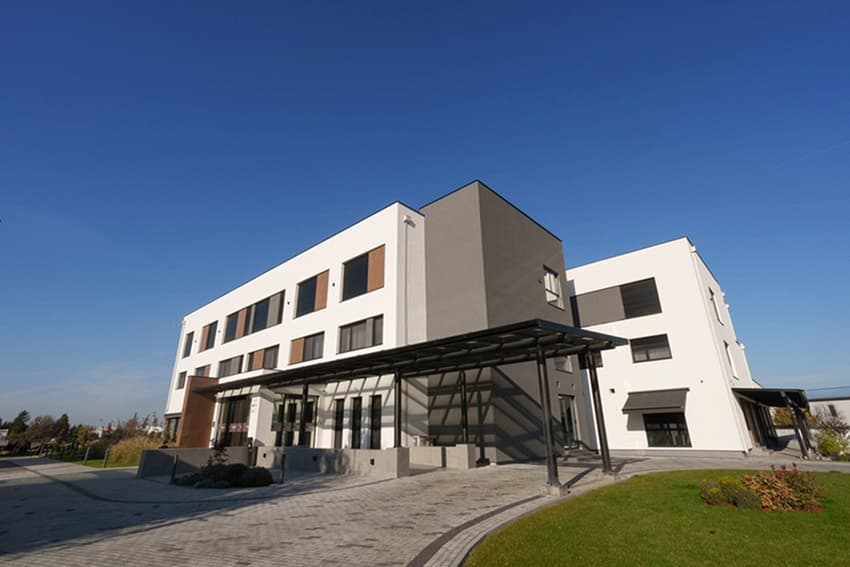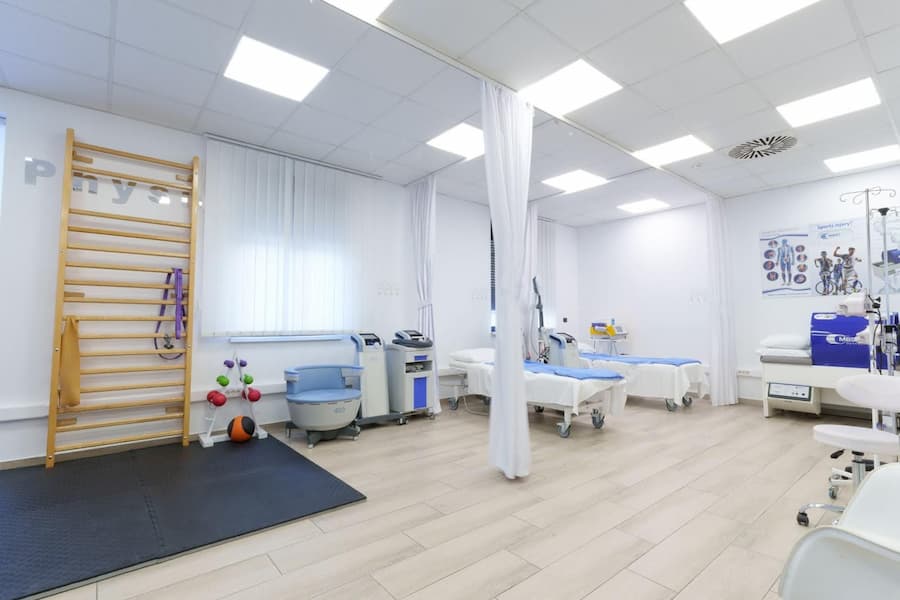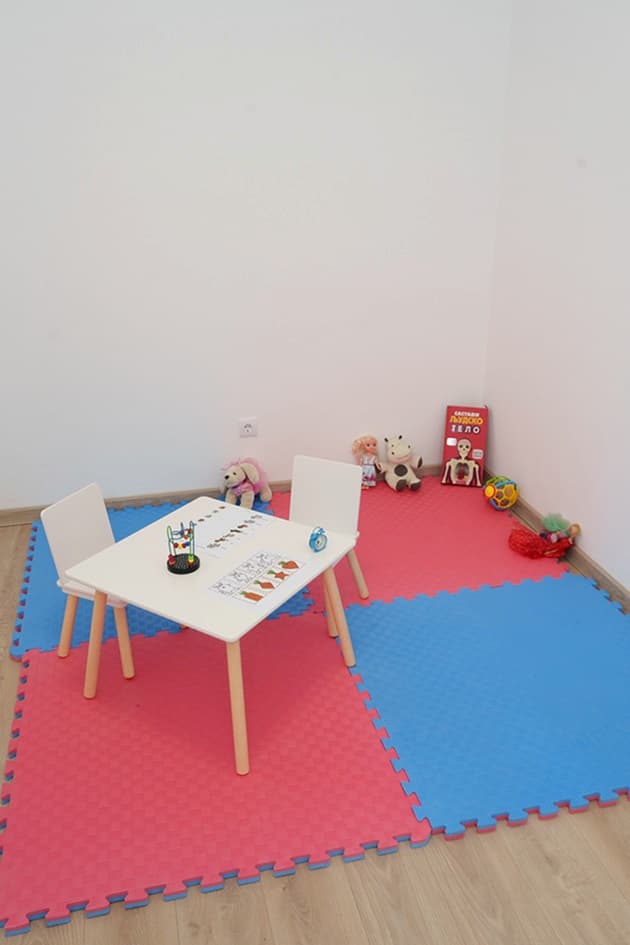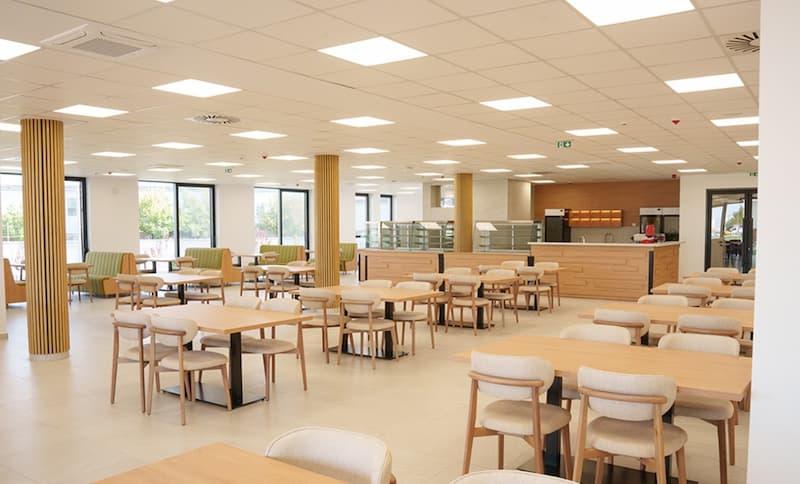When a child experiences developmental delays, it can impact their motor skills, language development, and learning abilities, creating individualized challenges. Traditional therapies, such as physical and occupational therapy, offer valuable support, and new approaches are being explored to further enhance outcomes and possibilities. One of the promising options is stem cell treatment for developmental delay, aimed at supporting brain and nerve cell growth.
In this guide, we’ll explain developmental delay, go over standard therapies, and explore how developmental delay therapy with stem cells can help parents and children make a step towards a better quality of life.
Understanding Developmental Delay: What It Means for Your Child
Developmental delay is a major concern for parents and caregivers because it can have a wide range of consequences for a child’s growth and learning. In this regard, early identification and intervention are crucial, as they enable the child to receive appropriate treatments, including developmental delay stem cell therapies, and the necessary support to reach their full potential.
In this regard, early identification and intervention are crucial, as they allow the child to get proper treatments, including developmental delay stem cell therapies, and support to realize their full potential.
Defining Developmental Delay
Children grow at their own pace, but sometimes a child’s speech, language, thinking skills, or social interactions might develop more slowly than other kids the same age. These slower developments can range from difficulties with walking and talking to challenges with problem-solving and interacting with others. If a child shows significant delays in two or more of these areas, it might be diagnosed as global developmental delay.
Early Signs and Common Symptoms
To determine the right form of treatment, including whether developmental delay stem cell therapy is suitable, parents should discuss the following symptoms with medical professionals:
| Motor skills | • Delayed milestones such as rolling over, sitting up, crawling, or walking. • Difficulty with jumping, climbing, or other motor skills. • Difficulties with motor skills, such as holding a crayon. |
| Speech and language | • No babbling by 9 months, no words by 12 months. • Limited or no speech development by the age of three. |
| Thinking skills | • Trouble solving problems or learning new skills. • Difficulties with remembering things or logical thinking. |
| Social and emotional development | • No interest in playing with other children by the age of 3. • Difficulty understanding emotions or adjusting to changes in routine. |
| Social and emotional development | • No interest in playing with other children by the age of 3. • Difficulty understanding emotions or adjusting to changes in routine. |
| Behavior | Frequent tantrums, repetitive behavior, or difficulty concentrating. |

Causes and Risk Factors
A variety of factors and risks, ranging from genetic to environmental, can cause developmental delays. As this condition becomes global, developmental delay treatments may become necessary for an increasing number of people.
| Factors | The way they appear |
| Genetic | • Genetic steaming from conditions such as Down syndrome and Fragile X. • Metabolic problems, including PKU. |
| Environmental | • Exposure to alcohol, drugs, or toxins during pregnancy. • Infections, like rubella, that a mother contracts during her pregnancy or malnutrition of the mother during her pregnancy. • Lead poisoning, mercury poisoning, or exposure to other toxins after birth. |
| Perinatal | • Preterm birth, low birth weight, or anoxia at birth. • Physical trauma suffered during birth or early infancy, such as that associated with shaken baby syndrome. |
| Postnatal | • Severe trauma or neglect occurring in early childhood. • Ongoing chronic health problems. |
Introduction to Stem Cell Therapy for Developmental Delay
Developmental delay therapy complements traditional treatments, thus enabling the child to learn new skills as well as improve the existing ones. In that way, the stem cells can change the way we treat developmental issues.
How Stem Cells Work to Help in Child Development
Developmental delay stem cell therapy is thought to work by harnessing the natural regenerative abilities of stem cells. Studies indicate they may help by:
Releasing bioactive factors
These factors act like messengers, stimulating the body’s own repair processes and promoting recovery.
Regulating the immune system
In some cases, an overactive immune system can contribute to developmental delays. Stem cells can help rebalance the immune response, reducing inflammation and promoting healing.
Together, these actions may help improve functional deficits related to developmental delays.
Uncover how stem cells work and are used in therapy—dive into the details in our article.
Read nowBenefits of Stem Cell Treatment for Children with Developmental Delays
Global developmental delay treatment with stem cells shows potential in helping children progress in several key areas we mentioned before, including communication, motor skills, and social interactions. Here’s how stem cell therapy for developmental delays can help make a difference:
Enhancing the brain and motor skills
Stem cells create a regenerative environment that helps improve existing brain cells, enhance neural connections, and promote better coordination. For children with developmental delays, this supports improved motor skills, cognitive function, and physical development.
Global developmental delay treatment with stem cells also promotes brain repair by supporting neural regeneration and strengthening connections. This may bring an improvement in communication and social skills and a decrease in repetitive behaviors, allowing children to relate to others more easily and with confidence.
Reducing inflammation for better brain health
Much of the developmental delays have been associated with brain inflammation. Stem cells help by reducing the inflammation, therefore assisting in brain development. This can bring improvement in focus, clarity, and general neurological function.
Protecting and building up the brain
The stem cells release protective factors that safeguard the brain cells from damage. Such a process could enhance memory, learning, and cognitive skills, potentially allowing children to reach new developmental stages.
General quality of life improvements
Stem cell therapy for developmental delays can enhance the quality of life for children with developmental delays, helping them gain independence, regulate emotions, and form better social connections. This boosts self-confidence and prepares them for life’s challenges, leading to a happier, healthier life.
Success Stories and Real-World Applications
Studies and real-life applications of developmental delay therapy with stem cells have shown promising results. According to parents, most children show general improvement soon after receiving global developmental delay treatment and continue to improve over time.
Watch our patient’s post-stem cell therapy journey, results, and accomplishments.
Get a free online consultation
Wondering how stem cell therapy could benefit your child with developmental delays? Fill out the form for a free online consultation, and our medical advisors will help you understand how this treatment might support your child’s growth.

Medical Advisor, Swiss Medica doctor
Choosing the Right Stem Cell Clinic for Developmental Delay Therapy
Selecting a clinic with experience and qualifications can significantly increase access to high-quality stem cell treatment for global developmental delay. The most important factor to consider is choosing clinics that have experience treating children with conditions such as autism or cognitive issues.
Swiss Medica specializes in providing advanced treatments and compassionate care to children with developmental delays. Our facilities in Belgrade include a clinic and a hospital spread across five buildings. They are easily accessible to international patients—just 15 minutes from the airport.
Here are some key points that help us provide high-quality treatment and achieve an 80% success rate.
All-Inclusive Treatment
We offer an all-inclusive package consisting of a global developmental delay stem cell treatment, pre-treatment preparation, main therapy, comfortable accommodation, and post-treatment exosomes.
24/7 Care and Support
Throughout your child’s primary treatment, our medical professionals will be by your side, and our medical advisors will be available to address any concerns you may have.
Even on the busiest days, we are able to provide attentive care due to our doctor-to-patient ratio of 3-4.
Hotel-like Accommodation and Meals
Upon your arrival in Belgrade, we will arrange for everything to make your trip as comfortable as possible:
- We provide airport pick-up.
- A relaxing, hotel-like, and kid-friendly environment awaits you and your child.
- We tailor our menus to meet the dietary needs and preferences of children.
Equipment and In-House Laboratory
One of the advantages of our global developmental delay stem cell treatments is cutting-edge technical equipment and cell production in-house. Without the need to wait for external lab services, our clinic is able to produce stem cells and simplify procedures, allowing patients to receive individualized care faster.
Swiss Medica provides a welcoming and supportive environment tailored to children with developmental delays, creating a space where they can feel safe and comfortable throughout their treatment journey.
Discover why you can trust us with your child’s health. Explore our lab and safety measures.
Explore hereStem Cell Treatment Process: What To Expect
Understanding how the stem cell treatment for developmental delay goes can help you alleviate all the doubts and set expectations. Here is a general overview of what you may experience in each step of your treatment journey with Swiss Medica.
Step 1. Initial Consultation and Assessment
During your first consultations, the doctor will take the time to carefully review your child’s medical history, developmental milestones, and unique needs. This thoughtful evaluation allows them to create a personalized global developmental delay treatment plan aimed at supporting your child’s progress effectively.
Step 2. Preparation for the Therapy with Stem Cells
Based on the medical evaluation, a personalized plan will be developed, which may include stem cell therapy, complementary therapies, and supportive care. Prior to your arrival, we prepare stem cells from a reliable donor source—umbilical cord or placenta—in the lab through testing, cultivation, and activation.
Step 3. Treatment Procedure and Timeline
During the stem cell treatment for developmental delay, doctors will guide you through each step. They’ll outline the timeline—from the day of treatment to additional therapies to follow-up care.
Stem cells and exosomes will be administered using minimally invasive methods with mild sedation, tailored to target the brain and nervous system. Regular check-ins will track your child’s progress, with potential improvements appearing within weeks to months.
Step 4. Post-Treatment Care and Follow-Up
After global developmental delay stem cell treatment, the doctor and care team will closely monitor your child for any side effects and ensure their comfort. Doctors will be in touch with you to monitor progress and follow up on the recommendations you received.
Safety and Risks of Stem Cell Therapy for Developmental Delay
Stem cell treatment for developmental delay is generally considered a low-risk therapy; however, safety protocols will be in place to minimize any complications.
Here is how Swiss Medica prevents risks:
- Detailed evaluations of every patient’s case history to ensure that stem cell therapy is appropriate and potentially effective.
- Umbilical cord and placenta-derived stem cells are collected under sterile conditions to avoid contamination. These cells are considered safe because they are derived from adult tissues rather than fetuses or embryos, and they lack the potential for uncontrolled differentiation and tumor formation.
- The stem cells are checked for quality and viability at each step of processing.
- An in-house lab with flow cytometry and cryopreservation assures quality control and coordination throughout the stem cell therapy for developmental delays process for high safety standards.
While most patients report improvements after global developmental delay treatment with stem cells, some may experience side effects. Common short-term effects can include:
- A slight fever shortly after the stem cell treatment for developmental delay as the body responds to the stem cells.
- Redness, swelling, or pain at the injection site may occur but usually goes away very fast.
- Temporary headaches or fatigue after the procedure, which disappear in a few hours.
Cost of Stem Cell Treatment for Developmental Delay
On average, treatment with stem cells can cost anywhere between $5,000 and $50,000, depending on the type of treatment and the particulars of the case in question. For global developmental delay treatment, costs fall around $12,000 to $20,000 across the world.
Factors that may influence the cost:
- Types of stem cells.
- The complexity of the condition being treated.
- The geographical location of the treatment facility.
Swiss Medica provides treatment for global developmental delay at a cost ranging from €7,000 to €19,000*, depending on the treatment plan.
Most insurance plans do not cover global developmental delay treatment with stem cells—patients typically pay for these therapies out of pocket..
*The prices mentioned are indicative and subject to change based on individual factors, including the condition’s severity and the number of stem cells needed. Prices are valid as of January 2025.
Research on Stem Cells in Developmental Delay
Currently, many clinics worldwide are trialing autologous stem cells to treat developmental delays. For instance, studies show that stem cells from umbilical cord blood may be associated with improvement in mental and motor development, as well as daily living skills. Researchers are currently conducting long-term clinical trials to determine the effectiveness and safety of stem cell treatment for global developmental delay.
Alternative Therapies for Developmental Delay
Both traditional and alternative treatments for global developmental delay provide the potential to support children in their growth.
Speech, Occupational, and Physical Therapy
These traditional therapies can support your child’s development and improve communication, help achieve independence in daily tasks, like dressing and feeding, and enhance mobility and coordination.
Dietary and Nutritional Interventions
A healthy and balanced diet supports brain health and development. Adding omega-3 fatty acids from fish or decreasing processed foods will improve cognitive function and behavior. Some families also look into the possibility of special diets, such as gluten-free or casein-free diets. Focusing on nutrition creates an overall supportive environment that complements other child developmental delay treatments and promotes health in general.
Integrative Approaches: Combining Stem Cell Therapy with Other Traditional Methods
Using global developmental delay treatment with stem cells alongside other treatments offers a well-rounded approach to your child’s improvement.
Swiss Medica’s Innovative Approach
For our global developmental delay stem cell treatment, we use not only stem cell therapy but also related products, such as exosomes, as well as additional procedures like physiotherapy and occupational therapy.
Discover how occupational therapy can benefit child developmental delay treatments.
Learn more nowFrequently Asked Questions About Developmental Delay and Stem Cell Cure
1. What Is Stem Cell Therapy for Developmental Delay?
Child developmental delay treatments with stem cells support neurological repair, with stem cells modulating immune responses to promote brain health. The biomedical products used in therapy can include:
- Placenta and umbilical cord-derived donor mesenchymal cells.
- Exosomes derived from stem cells.
- Macrophages, which dampen inflammation and promote a healing environment in the brain.
2. What Are the Expected Outcomes of Treatment?
Most patients report considerable improvements in communication skills, social skills, and daily functioning after the stem cell therapy for developmental delay. While some parents may see improvements within weeks, the full range of therapeutic benefits typically becomes evident over several months.
3. Are There Any Age Limits for Treatment?
While there is no strict age limit for global developmental delay treatment with stem cells, most therapists recommend early intervention for better outcomes. Research suggests that children between the ages of 3 and 7 may benefit the most from treatment due to the brain’s continued development during this period.
4. When Are the Results Noticeable?
Results from stem cell therapy for developmental delay typically start to show within 1 to 3 months after treatment, with the most significant improvements usually seen 6 months to a year later. Some parents even report early signs of progress during the treatment process itself.
5. What Is the Success Rate of Stem Cell Therapy for Developmental Delays?
Results can vary depending on factors such as the severity of the condition. Some clinical trials report positive outcomes, with patients showing significant improvements after stem cell treatment for global developmental delay.
At Swiss Medica, we’ve helped over 1,000 children with autism-related issues, many of whom have shown considerable progress in motor skills, cognitive function, and communication abilities.
6. Can Stem Cells Cure Developmental Disabilities?
Stem cells cannot cure developmental disabilities, but they may help improve symptoms by supporting brain and neural function. So when searching for the answer to “Can stem cells cure developmental disabilities?,” one may be sure that they may help improve quality of life and support development in children.
Send a request
If developmental delay is affecting your child’s progress, stem cell therapy may offer a solution. Fill out the form for a free online consultation, and our experts will explain how this treatment could help unlock their potential.

Medical Advisor, Swiss Medica doctor
List of References
WebMD. (n.d.). Recognizing developmental delays: birth to age 2. Retrieved November 7, 2024, from https://www.webmd.com/parenting/baby/recognizing-developmental-delays-birth-age-2
Khan I, Leventhal BL. Developmental Delay. [Updated 2023 Jul 17]. In: StatPearls [Internet]. Treasure Island (FL): StatPearls Publishing; 2024 Jan-. Available from: https://www.ncbi.nlm.nih.gov/books/NBK562231/
Narzisi, A., Halladay, A., Masi, G., Novarino, G., & Lord, C. (2023). Tempering expectations: Considerations on the current state of stem cells therapy for autism treatment. Frontiers in Psychiatry, 14. https://doi.org/10.3389/fpsyt.2023.1287879
Qu J, Liu Z, Li L, Zou Z, He Z, Zhou L, Luo Y, Zhang M, Ye J. Efficacy and Safety of Stem Cell Therapy in Children With Autism Spectrum Disorders: A Systematic Review and Meta-Analysis. Front Pediatr. 2022 May 4;10:897398. doi.org/10.3389/fped.2022.897398
Bookimed. (n.d.). Stem cell therapy cost. Retrieved November 7, 2024, from https://us-uk.bookimed.com/article/stem-cell-therapy-cost/
Beaulieu CL, Dijkers MP, Barrett RS, Horn SD, Giuffrida CG, Timpson ML, Carroll DM, Smout RJ, Hammond FM. Occupational, Physical, and Speech Therapy Treatment Activities During Inpatient Rehabilitation for Traumatic Brain Injury. Arch Phys Med Rehabil. 2015 Aug;96(8 Suppl):S222-34.e17. doi.org/10.1016/j.apmr.2014.10.028
Cha B, Kwak H, Bang JI, Jang SJ, Suh MR, Choi JI, Kim M. Safety and Efficacy of Allogeneic Umbilical Cord Blood Therapy for Global Development Delay and Intellectual Disability. Stem Cells Dev. 2023 Apr;32(7-8):170-179. doi.org/10.1089/scd.2022.0252
Lindsay Zhou, Courtney McDonald, Tamara Yawno, Graham Jenkin, Suzanne Miller, Atul Malhotra, Umbilical Cord Blood and Cord Tissue-Derived Cell Therapies for Neonatal Morbidities: Current Status and Future Challenges, Stem Cells Translational Medicine, Volume 11, Issue 2, February 2022, Pages 135–145, https://doi.org/10.1093/stcltm/szab024
Duke University School of Medicine. (2023). Umbilical cord blood improves motor skills in some children with cerebral palsy. Retrieved November 7, 2024, from https://medschool.duke.edu/news/umbilical-cord-blood-improves-motor-skills-some-children-cerebral-palsy
International Society for Cell & Gene Therapy. (2016). Title of the article. Cytotherapy, 18(9), 1151-1152. https://doi.org/10.1016/j.jcyt.2016.06.002
Chawner LR, Blundell-Birtill P, Hetherington MM. Interventions for Increasing Acceptance of New Foods Among Children and Adults with Developmental Disorders: A Systematic Review. J Autism Dev Disord. 2019 Sep;49(9):3504-3525. doi.org/10.1007/s10803-019-04075-0
MD, Pediatrician, Regenerative Medicine Specialist











